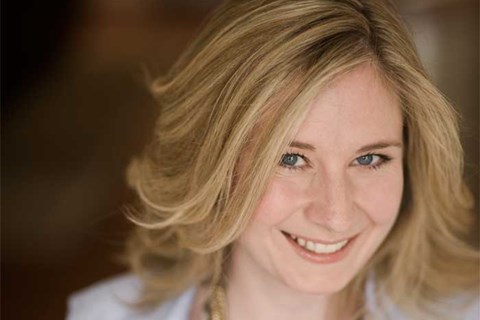Sheri Murano, MW felt Nomacorc's innovation "created a unique dialog in the industry – something that has continued to this day"

Sheri began her formal wine education at the International Wine Center in New York City, where she later became an instructor. She completed the Wine & Spirits Education Trust (WSET) Intermediate Certificate in 1998 and the WSET Advanced Certificate a year later. In 2000, she became one of the youngest Americans to complete the WSET Diploma (DWS) and the following year passed the Certified Wine Educator (CWE) exam. In 2003, Sheri earned the esteemed title Master of Wine (MW) and became the youngest American woman to achieve the designation.
In addition to her role with Chai Consulting, which specializes in wine cellar planning and inventory management as well as fine & rare wine authentication, Sheri is a partner in Wine Ring, a consumer-focused wine technology platform, and a consultant for Strategic Insights, a marketing research firm. In 2012, she founded the Triangle Wine School to offer WSET certifications to wine lovers and trade professionals in North Carolina.
In addition to her consulting work, Sheri writes for several publications and serves as a judge at a variety of wine competitions around the world. Sheri has been featured in a number of magazines and on television and radio shows around the country.
Sheri likes to joke that she is a jack-of-all-trades, Master of Wine.
Q&A WITH SHERI MORANO
Q: Describe the “aha” moment when you first fell in love with wine.
My biggest aha-moment happened more than 10 years after getting into wine. I was poured a skin-fermented Chardonnay served out of a metal canteen — It was like nothing I had tasted before. It was the first time while drinking that I ever said, “I have to meet this person.” A year later, I moved to CA from Atlanta and was working for that winemaker in a warehouse in Santa Rosa. That wine completely changed my life.
Q: Do you have a philosophy about wine you strive to share with others?
I think ultimately what is most important is that you understand your own personal preferences in wine. Just because someone else likes a wine or gives it a high score doesn’t mean it will be something you like. At the same time, I think you need to explore wine to discover what’s out there.
Q: What led you to recommend Nomacorc PlantCorcs?
I first got involved with Nomacorc about 8 or 9 years ago after I moved to North Carolina. I was so impressed by all of the research that they were doing on closures and oxygen management. I felt like the questions they were asking created a unique dialog in the industry – something that has continued to this day. I think it’s fantastic that winemakers now have the ability to choose the right closure for their wine rather than the one-size-fits-all scenario in the past. PlantCorcs are sustainable and consistent and that benefits both the winemaker and the consumer.
Q: Who inspires you personally — in wine or any endeavor?
Q: What is the most overrated trend in wine today?
Recently, Master of Wine students were confronted with the exam question: Which is more important in wine: tradition or innovation? It’s an interesting question as I think the two are intimately connected. Trends, whether they are overrated or not, are important as they push the industry forward. Of course, many innovations are a reaction to tradition. You almost can’t separate the two.
Fro example, a lot of people think that the Natural Wine is overrated. But in my opinion, it’s a sign of simultaneously looking back at what used to be done and looking forward to see what can be done today. I think it’s provoked a fascinating discussion within the industry that in the long run is healthy.
Q: What new winemakers/industry leaders are you most excited about, and why?
Q: If you weren’t a Master of Wine, what would you be doing?
Being a Professor of Tudor History. I was a double major in Medieval and Renaissance Studies and Classical Studies with a minor in Art History in college. The plan was always to go to grad school after Duke, but I decided to take a break. I started working in Marketing Research and taking evening classes in wine. One certification led to another (and another) and the rest is history.
Q: What, if anything, do you leave to chance in the cellar or in life?
Q: How has the perspective of time changed your approach to wine?
If anything, time has made me appreciate wine more. Wine to me is the most interdisciplinary subject out there – it encompasses a little bit of everything. What I love most is that it is also constantly changing and evolving – there is also always something new to discover and learn about.
Q: What is your idea to perfect happiness?
An empty email inbox.
